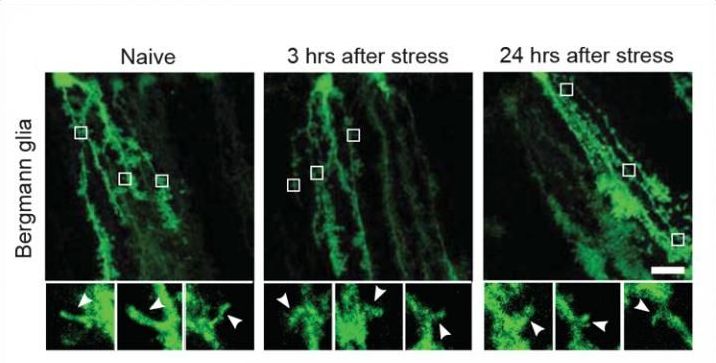Stress restructures the brain by halting the production of crucial ion channel proteins, according to research in mice recently published in JNeurosci.
Stress harms the brain and body in profound ways. One way is by altering astrocytes, the brain’s housekeepers tasked with mopping up neurotransmitters after they’ve been released into the synapse. On the cellular level, stress causes the branches of astrocytes to retract from the synapses they wrap around.
Bender et al. investigated what controlled astrocyte changes after mice experienced exposure to the urine of a fox, their natural predator. This single stressful event caused quick but long-lasting retraction of the astrocyte’s branches. Stress induces this change by halting the production of GluA1, an essential subunit of glutamate receptors. During a stressful event, the stress hormone norepinephrine suppresses a molecular pathway that normally culminates in the protein synthesis of GluA1. Without functional GluA1 or glutamate receptors, neurons and astrocytes lose their ability to communicate with each other.










Comments are closed.